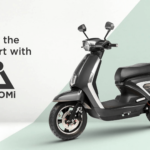The way petrol prices have swelled over the past three to four years is unprecedented. The bad news is that they are likely to keep increasing across the globe. With the trend continuing to remain the same, electric scooters offer an excellent alternative to your daily commute and riding activities.
The high price of petrol-powered scooters and the added fuel costs dent the dreams of those who wish to buy one. The good news is that this significant problem has an electric solution. Electric scooters present an excellent opportunity to those who wish to own a modern scooter without putting a dent in their budget.
This comparison of electric scooter vs petrol scooter isn’t to make one win over the other. We are here to state some facts about both kinds of scooters and make a thorough comparison. It’ll help you assess which scooter you should eventually buy for yourself.
Electric Scooters vs Petrol Scooters
We have picked the five most essential parameters customers look for before buying a scooter. Let’s see how both types of scooters perform in this battle.
1. Pricing
There was a time when buying an electric scooter was more expensive than purchasing a petrol-powered scooter. Due to rising costs, petrol scooters aren’t cheap either. So, why has the price of electric scooters been reduced?
There are different reasons for this :
- State governments are offering special subsidies of up to INR 15,000.
- The manufacturers are also sourcing parts from local vendors.
- Batteries are becoming slightly cheaper as well.
- Many brands have introduced models that start at a low price point for short city drives. However, these scooters have a low range and aren’t suited for long purposes, even in the same city.
Still, most capable electric scooters are indeed a bit expensive at the start. But their low running costs cover all of it in a few months. Post that, you start saving a lot of money.
2. Fuel Cost
This is where the electric vs petrol scooter comparison has a clear winner. Electric scooters require only battery charging and offer the same or more mileage after less than half the cost of running a petrol scooter. So, in the longer run, electric scooters save you a lot of money.
However, certain challenges remain prevalent. For instance, there are very few public charging stations for electric scooters, while one can easily find petrol stations around the city. Currently, electric scooters aren’t suitable for those who drive to different cities or more than 100 km every day. Most petrol scooters average 45-55 km per litre in Indian driving conditions regarding fuel economy. But, most electric scooters utilise INR 10-15 for the same range, inclusive of the electricity costs.
For example, if you ride 20,000 km in two years, you could save around INR 40,000 by using an electric scooter by not spending on petrol. Also, petrol costs are rising rapidly compared to electricity costs, another element to consider.
3. Operational Range
Most electric scooters in the market have a dynamic range of 50-100 km. The issue is that once the range is depleted, charging the battery again requires some amount of time. However, that is not the same case with petrol scooters. They not only have a longer range, it hardly takes 5 minutes to go to a pump and refuel the tank.
If you drive in the city and your daily range requirements are below 60 km, an electric scooter is your best shot. If this requirement is more than 70-80 km every day, for now, stick to a petrol scooter. In the future, when electric scooters have a better range, they’ll become a better option.
4. Maintenance
Electric scooters require very little maintenance encompassing battery charging, cleaning, and overall safety maintenance. On the other hand, petrol scooters require timely maintenance like oil change, greasing, and mechanical servicing. Delaying such maintenance operations affects the performance of a petrol-run scooter.
5. Convenience
To fully or even partially operate an electric scooter, it needs 2-3 hours to charge. It can be challenging if you live in an apartment and don’t have a charging station in the parking lot to charge your scooter. However, many scooters now carry removable batteries, making the charging hassle-free.
Although expensive, fuelling a petrol scooter at a gas station is relatively easy to handle. Hence, it is more convenient. However, electric scooters have more boot space and don’t produce any smoke. Most also have a superior pickup that helps you in start-stop traffic.
Conclusion
Is an electric scooter better than a petrol scooter? The answer to this question isn’t straightforward. As you can see, both have their respective advantages and disadvantages. However, electric scooters seem to be more profitable than petrol scooters in the long run. If you do pick an electric scooter and want a top-quality scooter with superior comfort, driving experience, and overall performance, go for iVoomi’s electric scooter.
The company’s two models take less time to charge, are built with top-notch materials, and have a real-world range of 110 and 130 km, respectively.

